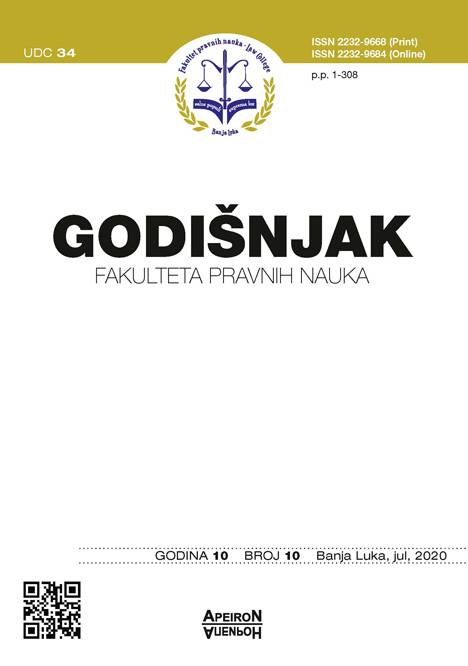Tax on the Income of Natural Persons Republic of Srpska
DOI:
https://doi.org/10.7251/GFP2010183DAbstract
Tax on the income of natural persons is one of the most important and complex forms of tax. It is considered a very generous form of tax, suitable for realization of both fiscal and numerous extra-fiscal taxation goals. Most authors classify this tax as a form of tax of developed capitalism, because it was only in capitalism that the preconditions for its introduction into the tax system were created.Among the assumptions that imposed the need for income tax and which enabled its inclusion in the tax system, are: the existence of several sources of income from which the taxpayer derives its economic strength, the existence of relevant data for tax assessment, the existence of adequately trained tax administration that has the necessary knowledge and skills to successfully control tax collection, definition of the content of the income (total income), as the most appropriate expression of the economic strength of the taxpayer, as well as the development of awareness that citizens integrated into society should contribute to the financing of increased state functions. The existing system of tax on the income of natural persons in the Republika Srpska is based on synthetic (global) income tax, so that the basic sources of income, except those exempted by law, are taxed at the source, while the annual income tax is the sum of all earned income reduced by the recognized tax credit. The aim of this paper is to examine the basic characteristics and elements of the tax on the income of natural persons in the Republika Srpska.
